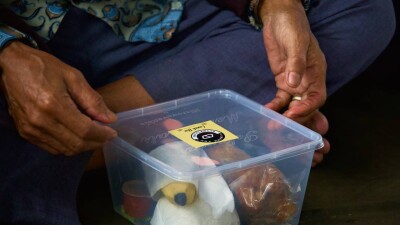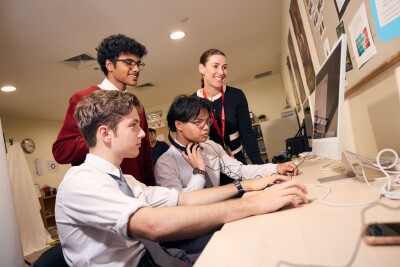Hong Kong Survey Reveals Over Half of Middle-Aged and Elderly Unvaccinated Due to Low Pneumococcal Vaccination Awareness
Media Outreach
Sep 10, 2023
Medical professionals and social organizations call for increased awareness of pneumococcal threat and strengthened preventative measures among high-risk individuals
HONG KONG SAR – Media OutReach – 10 September 2023 – Recent findings from a comprehensive survey conducted in Hong Kong have revealed an alarming lack of awareness about the pneumococcal vaccine, leaving more than half of the city’s middle-aged and elderly population unprotected against this potentially deadly infection. Despite the established effectiveness of vaccination as a preventative measure against pneumococcal disease, the city’s current vaccination rate is unsatisfactory.

As the next generation of pneumococcal vaccines with broader serotype coverage becomes accessible in Hong Kong, international vaccination guidelines, including those from the United States Centers for Disease Control and Prevention (CDC), have been updated to encompass the latest immunization recommendations.
Hong Kong’s medical and social welfare communities have come together to issue a joint appeal, urging the public to recognize the serious threat posed by pneumococcal disease. The appeal emphasizes the importance of preventive measures, particularly among high-risk individuals.
Alarming low pneumococcal vaccination rate among high-risk elderly in Hong Kong
“Pneumonia, predominantly triggered by pneumococcal disease, ranks as the second leading cause of death in Hong Kong,” emphasized Dr Stanley Tam Kui-fu, President of the Hong Kong Geriatrics Society. “With pandemic prevention measures relaxing, we’re seeing a resurgence of serious illnesses linked to pneumococcal infections back to pre-epidemic levels. The elderly, particularly those grappling with chronic diseases, are at a significant risk. Their likelihood of hospitalization due to pneumococcal pneumonia is more than ten times higher compared to those in the 18-49 age group.”
Mr. Chow Chun-man, Vice President of Hong Kong Respiratory Nursing College, concurred, noting that older adults are particularly susceptible to severe complications from pneumococcal disease. “Many elderly patients hospitalized due to pneumococcal infections require intensive care and mechanical ventilation, with many suffering from significant sequelae, including reduced lung function, even after discharge,” he remarked.
To address the less-than-ideal vaccination rate — currently only 40% of the elderly population have been vaccinated — The Hong Kong Alliance of Patients’ Organizations partnered with the School of Nursing of the Hong Kong Polytechnic University to conduct a territory-wide survey through 90 trained elderly health ambassadors, inviting individuals aged 50 and above to answer questions about their knowledge of pneumococcus and their attitudes towards vaccination. This extensive outreach has successfully garnered over 2,000 completed surveys, providing a wealth of insightful data with highlights as follows:
1. General public’s knowledge of pneumococcal infection is limited, leading to oversight of the severe consequences it can bring.
- Few people pay attention to symptoms such as ear pain, mental confusion, and neck stiffness that may appear during pneumococcal infection, most focus only on symptoms like fever, cough, and shortness of breath.
- Additionally, few people know that pneumococcus can also cause severe diseases such as meningitis and septicemia.
2. The ratio of total vaccinated population is low, mainly due to a lack of knowledge about the vaccine.
- Although the majority of people know that vaccination is an effective way to prevent pneumococcal infection, about half of the respondents have not been vaccinated.
- The primary reason for not getting vaccinated is “not knowing /do not have adequate knowledge about the pneumococcal vaccine”. In addition, “lack of sufficient vaccine information” and “fear of vaccine side effects” are common reasons for not getting vaccinated.
- On the hand, about half of the people do not know where to get the pneumococcal vaccination, and they are unaware that individuals aged 65 or above are eligible to receive subsided or even free government vaccination services.
3. A single-dose pneumococcal vaccine providing sufficient protection could be a game-changer in terms of encouraging prompt vaccination
- More than 80% of respondents stated that if only one dose of vaccine is required to provide sufficient protection, it would increase their willingness to get vaccinated.
- Long-lasting protection, availability of free vaccination, and high safety profile of the vaccine are the most important considerations for pneumococcal vaccination.
Professor Angela Leung Yee-man, Professor of School of Nursing, The Hong Kong Polytechnic University, who led this research, said: “The survey results show that in addition to strengthening disease education, information about vaccines needs to be more targeted and easier to understand to increase the vaccination rate among the elderly.”
CDC updates national guidelines for pneumococcal vaccination following Introduction of new-generation vaccines
The HKSAR Government currently offers 13-valent and 23-valent pneumococcal vaccines. The former, a conjugate vaccine, provides long-lasting protection but only covers 13 serotypes. The latter, a polysaccharide vaccine, covers more serotypes but has a shorter duration of protection.
In recent years, there have been breakthrough developments in pneumococcal vaccines with the emergence and subsequent registration of 15-valent and 20-valent pneumococcal vaccines by the Department of Health in Hong Kong. Professor Ivan Hung Fan-ngai, Chair Professor and Head of Division of Infectious Diseases of HKU Medical Faculty, pointed out that, both the aforementioned new vaccines are conjugate vaccines, offering durable protection, and cover a broader range of serotypes than the conventional 13-valent conjugate vaccine. Taking the 20-valent pneumococcal vaccine as an example, its coverage rate is 13.4% higher than that of the 13-valent vaccine, and at the same time covers the more popular serotypes overseas. He indicated that vaccines with broad serotype coverage are particularly important for Hong Kong as it is an open city with a mobile population that is susceptible to exposure to other serotypes of pneumococcus.
The US Centers for Disease Control and Prevention (CDC) has updated its national guidelines for pneumococcal vaccination. The new guidelines reflect the most recent scientific insights and recommendations, ensuring the best possible protection against pneumococcal disease for the general population. The updated guidelines indicate that individuals aged 65 and above, or those aged 19-64 with chronic illnesses who have never been vaccinated against pneumococcal disease:
- should receive a dose of the 15-valent vaccine, followed by a dose of the 23-valent vaccine a year later;
OR
- after receiving a dose of 20-valent vaccine, no additional pneumococcal vaccination is required.
“New-generation vaccines cover a wider range of serotypes. It is important for the HKSAR Government to promptly update vaccination recommendations and provide subsidy for the elderly to get the latest vaccines free of charge, giving the high-risk individuals in our city a higher level of protection.” Professor Ivan Hung remarked.
Introduction of new-generation pneumococcal vaccine and simplified vaccination policy to boost uptake among Hong Kong elderly
The HKSAR Government currently provides a pneumococcal vaccine subsidy scheme for individuals aged 65 and above. However, the type and dose of vaccine administered are decided based on the individual’s medical history, and are divided into high-risk and low-risk groups, each with different vaccination arrangements and doses.
Ms Iris Chang, President of the Hong Kong Academy of Pharmacy, believes that the complexity of the current vaccine measures can be confusing for the public and burdensome for healthcare professionals to explain, thus potentially deterring elderly individuals from getting vaccinated. She recommends that the government swiftly introduce the new-generation pneumococcal vaccine to expand serotype coverage, enhance herd immunity, and simplify the vaccination policy to encourage more elderly to get vaccinated.
Mr Yuen Siu-lam, President of the Hong Kong Alliance of Patients’ Organizations, also urges the government to strengthen public education on pneumococcal disease and enhance preventive measures. This includes lowering the threshold for vaccine subsidies, such as considering all individuals aged 65 and above, regardless of their risk level, for free pneumococcal vaccination. Moreover, as chronic diseases can increase the chance of severe illness and hospitalization, it is also recommended that patients aged 50-64 with chronic disease be provided with subsidies to allow more high-risk individuals to be protected by the vaccine.
Hashtag: #pnemococcal #pneumonia #vaccine
The issuer is solely responsible for the content of this announcement.




